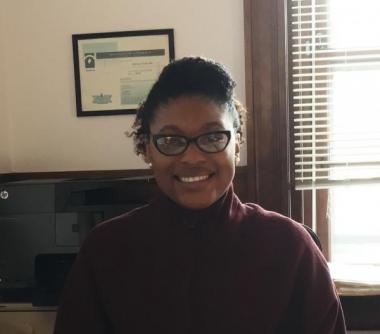
I think people don't understand their privilege, and we as a group, not just Worcester, not just women, but as citizens, as humans, need to be able to understand our privilege and how it intersects with oppression. And so there are so many people—like at Abby's [House], we provide services for women that have all different needs, from substance abuse, to trauma, to rape, to eviction. But here we try to preserve that human dignity. In the community, I don't see that as much. You know, there are a couple of agencies that work hard to provide services, but I think that responsibility should be something that we all share, to make sure that the person next to us is honored as a person and their needs are met. Granted, I know that we can't just say, "Oh I'm going to keep somebody in my house and they're going to have shelter and I'm going to feed everybody and I'm going to clothe everybody," but that person is still somebody that needs to be respected and deserves to be respected. It's just a lot of disrespect. It's a hard time now. It's a hard time to live in. Especially for me being a woman of color, it's very hard. Every day I send my son to school and I'm like, “Oh well, what's going to happen? Am I going to have to answer questions about why people are getting shot?” It's just a hard time to live in, and I think just a simple gesture of greeting somebody, sharing your privilege, would allow somebody to live more comfortably in an uncomfortable time.
Marissa Pyatt was born in Arlington, Virginia, in 1986. In 2016, Marissa found herself in Worcester for the first time, taking on the role as Director of Supportive Services at Abby’s House. Abby’s House is an emergency shelter for women, founded in 1976 at the beginning of the battered women’s movement. When she was a young girl, Marissa’s father murdered her mother, and so she was raised by her maternal grandparents. She attended Virginia State University, an Historically Black College and University, and then went on to get her master’s degree in clinical mental health counseling at South University. In this interview Marissa talks about social equality and the importance of understanding how you can help others. She says, “I think people don't understand their privilege, and we as a group, not just Worcester, not just women, but as citizens, as humans, need to be able to understand our privilege and how it intersects with oppression.” Marissa also touches upon her own childhood, the struggles of being a twenty-first century mother, and the importance of social justice and political action.
